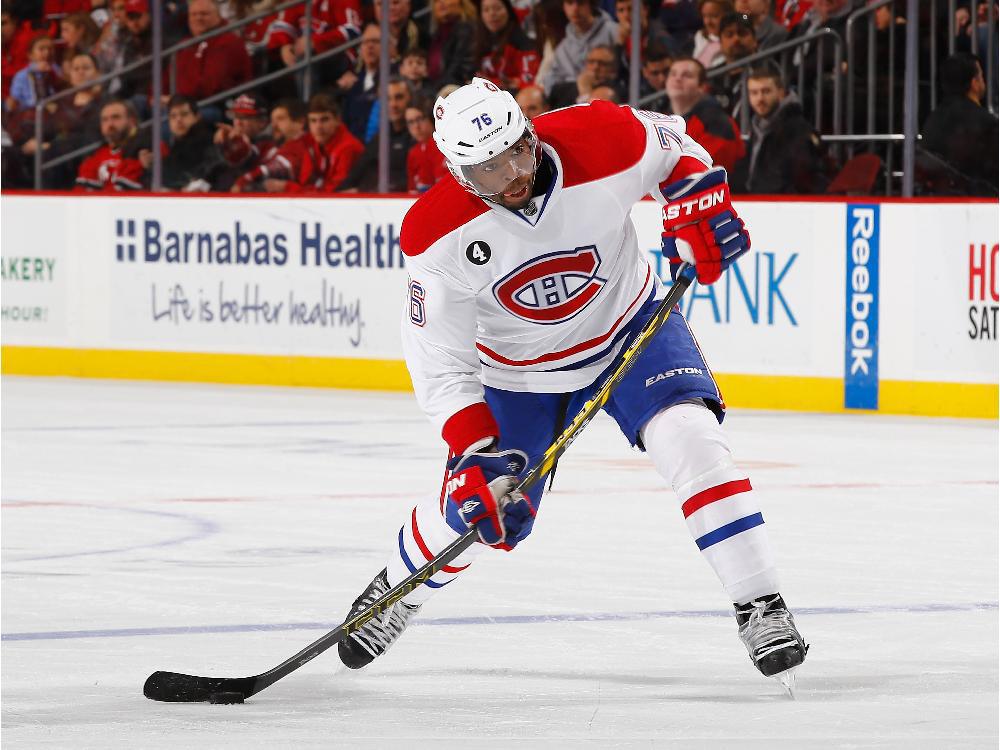
by Shannon Penfound, Staff Writer and Event Coordinator, All Habs Hockey Magazine

WINNIPEG, MB.– I recently had the pleasure of attending my second NHL Draft courtesy of All Habs Magazine. Along with over 40 die hard Montreal Canadiens fans from all over the globe, I was fortunate enough to witness Trevor Timmins and the Canadiens scouting team draft some potential superstars for the organization. Witnessing such a momentous event in a young man’s life got me thinking about the amount of work and research that goes into preparing for the draft, and the factors that a team must consider when searching for a good fit for their future plans.
This year, the Montreal Canadiens drafted five players from various leagues. In the first round, the Habs took Noah Juulsen, a 6-foot-2-inch right-handed defenseman, who spent the past few seasons with the Everett Silvertips and would have worked alongside last year’s first rounder, Nikita Scherbak. This past season, Juulsen had 52 points (9 goals, 43 assists) in 68 games for the Silvertips, over 40 points higher than his previous season with the club. Juulsen, a B.C. native, spent much of his time over the weekend chatting with fans in the concourse hall. I was lucky enough to chat with him briefly and he mentioned how excited he is to be with the Habs and that he was still in shock from the whole experience.
Aside from Juulsen, the Canadiens took Lukas Vejdemo (C), Matthew Bradley (C), Simon Bourque (D), and Jeremiah Addison (LW) in the 3rd, 5th, 6th, and 7th rounds respectively. You can check out our draft tracker here. There were a few surprised fans at our All Habs post-draft lunch on Saturday afternoon, a few of them citing just how uncertain late picks can be in their development. I am one to argue this is a fact, regardless of where a player is drafted.
A superstar must have inborn talent, this is obvious. But I argue that the key word really is ‘development.’ You can take someone who has all of the talent in the world, but if they are not given the proper guidance, support, and opportunities, their potential will diminish. Additionally, talent isn’t everything. A superstar must also possess the right hockey sense. What I mean by this is that a player must have the right personality, an ability to work in a tight-knit environment, and be comfortable in dealing with high-pressure and stressful situations regularly – both on and off the ice.
“We drafted players with upside, so our development team now will take over and work with them…The rest is up to our support staff and our development staff to help them develop and for the players to take it upon themselves to learn how to be a pro and become a pro.” – Trevor Timmins
Even our own Carey Price, though teeming with talent, had a rocky start in the NHL. Following the hiring of goaltending coach Stephane Waite, we have been able to see Price develop into, arguably, the best goaltender in the world.

Experts have argued that athletes who ‘make it’ in their sport actually have very similar personality traits, leading to a belief by some that there is in fact a ‘sport-specific’ personality. Typically, and more so in team-sport athletes, we witness the following traits1:
- assertiveness
- lower ego
- extroversion
- ability to adapt
In addition to these traits, athletes must develop a sense of maturity and emotional stability in order to deal with the pressures of working in such a large sports arena as the NHL. Being able to work closely within a team environment is also key. Athletes and staff often spend more time together than with their families during the season. Players must be able to adapt to constantly changing situations and the possibility of sharing living quarters with one another as well. Spending so much time with the same individuals is bound to stir up confrontation from time to time, but in my opinion, someone with the right ‘hockey sense’ is able to work through such issues before they become detrimental to an on-ice relationship.
We often hear the Montreal staff speak about ‘character’ in their team members and prospects. Character plays into one’s moral development. Typically, having ‘character’ means you1:
- are able to overcome obstacles
- work well with teammates
- have self-control
- persist in the face of defeat
On drafting Lukas Vejdemo, Timmins dropped the ‘C’ word,
“Off-ice, his training, everything is top-notch, like (Jacob) de la Rose is with us, high character2.” – Trevor Timmins
On drafting Simon Bourque,
“Solid character player. You keep hearing me repeat that, ‘solid character, competitive players.’ There’s a lot of that in these picks that we picked, a lot of that in our team, in our young players. It’s a common theme2.” – Trevor Timmins
It’s clear that the Montreal organization searches for a ‘specific’ type of player when it comes to personality traits. The next step, as Timmins mentioned, is up to their development staff to help these players become the necessary pieces that the organization requires. Following that, the players themselves need to understand and implement the skill & drive that it takes to be a superstar. We have been able to witness Timmins and the scouting staff pull out a few diamonds and I have no doubt that we will see some of these recently drafted youngsters flourish into exactly what Montreal needs.
1. Weinberg, R.S., & Gould, D. (2011). Foundations of Sport and Exercise Psychology. (5th). Champaign, IL: Human Kinetics
2. RAW: Trevor Timmins. Retrieved from: http://video.canadiens.nhl.com/videocenter/console?id=831208&catid=66


For me towes is the all around player!
the Russians once said Bob gainey was the best all around hockey player they had ever seen
the Russians once said Bob gainey was the best all around hockey player they had ever seen
Nice read Shannon.
See Max Pacioretty.
Comments are closed.